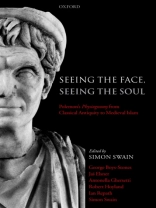Polemon of Laodicea (near modern Denizli, south-west Turkey) was a wealthy Greek aristocrat and a key member of the intellectual movement known as the Second Sophistic. Among his works was the Physiognomy, a manual on how to tell character from appearance, thus enabling its readers to choose friends and avoid enemies on sight. Its formula of detailed instruction and personal reminiscence proved so successful that the book was re-edited in the fourth century by Adamantius in Greek, translated and adapted by an unknown Latin author of the same era, and translated in the early Middle Ages into Syriac and Arabic. The surviving versions of Adamantius, Anonymus Latinus, and the Leiden Arabic more than make up for the loss of the original. The present volume is the work of a team of leading Classicists and Arabists. The main surviving versions in Greek and Latin are translated into English for the first time. The Leiden Arabic translation is authoritatively re-edited and translated, as is a sample of the alternative Arabic Polemon. The texts and translations are introduced by a series of masterly studies that tell the story of the origins, function, and legacy of Polemon’s work, a legacy especially rich in Islam. The story of the Physiognomy is the story of how one man’s obsession with identifying enemies came to be taken up in the fascinating transmission of Greek thought into Arabic.
George Boys-Stones & Jas Elsner
Seeing the Face, Seeing the Soul [PDF ebook]
Polemon’s Physiognomy from Classical Antiquity to Medieval Islam
Seeing the Face, Seeing the Soul [PDF ebook]
Polemon’s Physiognomy from Classical Antiquity to Medieval Islam
Achetez cet ebook et obtenez-en 1 de plus GRATUITEMENT !
Langue Anglais ● Format PDF ● ISBN 9780191569494 ● Éditeur Simon Swain ● Maison d’édition OUP Oxford ● Publié 2007 ● Téléchargeable 3 fois ● Devise EUR ● ID 8040456 ● Protection contre la copie Adobe DRM
Nécessite un lecteur de livre électronique compatible DRM












